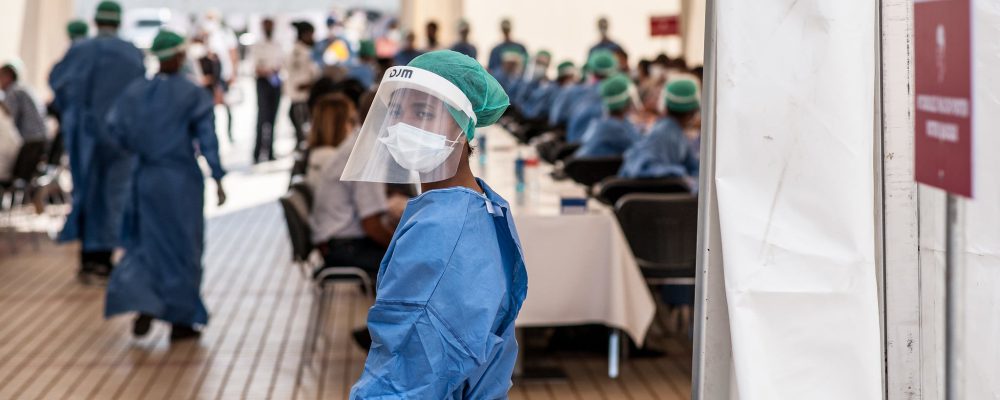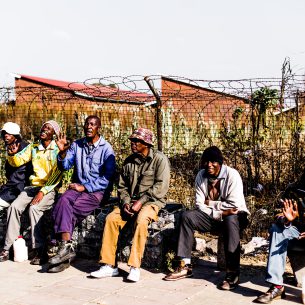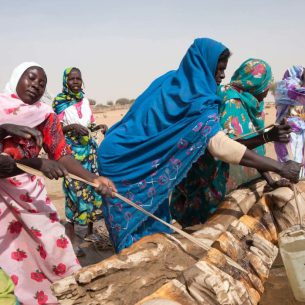
The COVID-19 pandemic is testing health care and disaster management systems of countries and the agility of policy responses to effectively handle a public health catastrophe. Since the first reported case in Africa on February 14, countries in the region have responded to the disease with varying levels of success, with many countries taking the lead in various ways. For example, on March 4, Nigeria was the first African country to sequence the SARS-CoV-2 genome. South Africa is now leading the continent in testing per capita—27,485 tests per million people as of July 1—currently ranked 19th globally.
Indeed, from Cape Town to Cairo, many countries have seized the opportunity to combine both existing emergency health care protocols and innovation to improve response effectiveness, from building affordable ventilators to using digital and emerging technologies for tracking and other economic activities.
In the sections that follow, we share some of the outstanding responses to COVID-19 from the region, derive key insights and important opportunities from the responses, and recommend policy actions for moving forward. For a wider look at global, as well as African, success stories, see the recent paper, “Learning from the best: Evaluating COVID-19 responses and what Africa can learn.”
Necessity is spurring great innovation across Africa
In Senegal, researchers developed an immune-based diagnostic test for COVID-19 available for only $1 while engineering students built a multifunctional medical robot to lessen the load on health care workers. Ghana has also produced a low-cost COVID-19 antibody test currently undergoing regulatory reviews. Kenya converted existing factories to mask production, with a production target of tens of millions. Other African countries quickly followed with the countries with stronger manufacturing capabilities coming out on top.
The breakdown of supply chains has offered opportunities for e-commerce solutions. Rwanda, for instance, was able to go cashless because of its high level of preparedness for a digital economy. Notably, to reinforce barrier and distancing measures, the government of Rwanda waived transaction fees on mobile payment transactions while mobile companies further optimized features on mobile payments.
Ghana is using Zipline drones to take samples to testing sites. In a good example of reverse engineering, the United States is also using Zipline drones for similar tasks after successful pilot programs conducted in Africa. Rwanda has used locally assembled drones to increase awareness through in-flight public broadcasts, and robots to screen and monitor COVID-19 patients.
Right now, 297 million learners in Africa are out of school because of the pandemic. As a result, Kenya, South Africa, Egypt, and Morocco, alongside many other countries, have launched e-learning platforms in partnership with national broadcasters, telecoms, and private players. However, while maintaining and increasing access to education is a vital step during the pandemic, it is too early to tell if students are actually learning.
Despite the pivotal role technology is playing in responding to COVID-19 as illustrated in the examples mentioned above, data and privacy protection challenges expose the tensions that exist between rights and responsibilities during a crisis.
More needs to be done
Given the continent’s weak medical systems, many have turned to other solutions. Several African countries such as the Republic of the Congo, Guinea-Bissau, and Tanzania have ordered and received shipments of Madagascar’s COVID-19 organic “remedy;” notably, the World Health Organization (WHO) and the Africa Centers for Disease Control and Prevention (Africa CDC) have offered to support the design of a study to test the efficacy of the organic product. Pursuant to this matter, the Malagasy government (as the primary sponsor) has since registered a clinical trial to test the efficacy of the product (now in capsule form) on a Pan African Clinical Trials registry.
Results from these trials will be critical in how Africa responds to future shocks. In fact, there are many medicinal plants that have been part of the treatment plans in African homes. It is time for the continent to take these treatments seriously and take them through systematic validation processes to establish efficacy. Indeed, consistent investment in the research of indigenous plants and scientific trials before getting to market are crucial for protecting and prioritizing the health and safety of African people.
Where available, contextual data modeling has been impactful, but more is still needed
Data modeling assists governments in predicting the evolution of the pandemic against the prescribed confinement and de-confinement measures. It can also provide innovative solutions for Africa’s context. For example, to counter the limited availability of diagnostic test kits, Rwanda adopted mathematical modeling to implement a pool testing method that reduces the number of tests required for an accurate infection count.
The South African government proactively set up a National COVID-19 Modelling Consortium as the primary source for all COVID-19-related projections. A Ph.D. student there developed an intuitive web-based COVID-19 dashboard to share real-time updates on the pandemic in South Africa and other countries.
However, data modeling capacity on the continent is still very low. Centers like the African Institute for Mathematical Sciences (AIMS), which launched a master’s degree program in machine intelligence in 2018, are critical for building data modeling capacity. Investments to scale these centers and other training and research institutes in data science are vital for the development of human capital in the field.
Beyond capacity building, more needs to be done to build resilient infrastructure as well as provide researchers access to data with specific research and policy goals given that the devastation of the climate crisis will only get worse, and Africa is already feeling its impact.
So far, data collected on the continent presents marked differences in infection rates between urban and rural areas. For example, Senegal’s capital city of Dakar has accounted for the majority of the country’s infections—providing an important incentive for building better urban health and planning foresight capacity.
Key lessons for Africa
Given these success stories, here are the most important lessons that emerge from our recent assessment:
- Decisive leadership that stands on sound and contextual scientific, economic, and social advice, not political expediency, is key to accelerate containment and recovery.
- Full lockdowns are not sustainable in Africa for periods longer than a couple of weeks, even with some social protection.
- African countries with strong local manufacturing capabilities will recover faster.
- Strong willingness to adopt and deploy new technologies has been to Africa’s advantage, but this should be more systematic (see NEF Innovation Framework) with clear financial instruments.
- Countries like Taiwan set up a task force to review and fund innovative startups. Like in Taiwan, African innovation task forces and funds need to be more agile without sacrificing safety and quality.
- The continent needs to invest in data modeling capacity to assist governments in contextual decisionmaking.
- More funding should be made available toward the improvement of Africa’s indigenous plants research and clinical trial capacity more generally.
Policy Recommendations
We recommend governments adopt the following strategies contextually to prepare for future public health shocks. Governments should:
- Put in place sustainable, early response mechanisms supported by an innovation-friendly regulatory framework, sound infrastructure, and adequate funding to operationalize such plans. Governments should start building strategic funds early to build reserves of strategic stocks for health care emergencies.
- Promote multiple helix partnerships to unlock innovative capacity across sectors and explore the use of emerging technologies with ethical oversight and leverage the ongoing efforts to promote local production over imports.
- Adopt a common Pan-African vision and strategy for research and development that effectuates funding mechanisms from research to industrialization.
- Support this vision by leveraging a data-driven knowledge ecosystem, increasing centers of excellence and regional laboratories as well as investing in clinical trials capacity.






